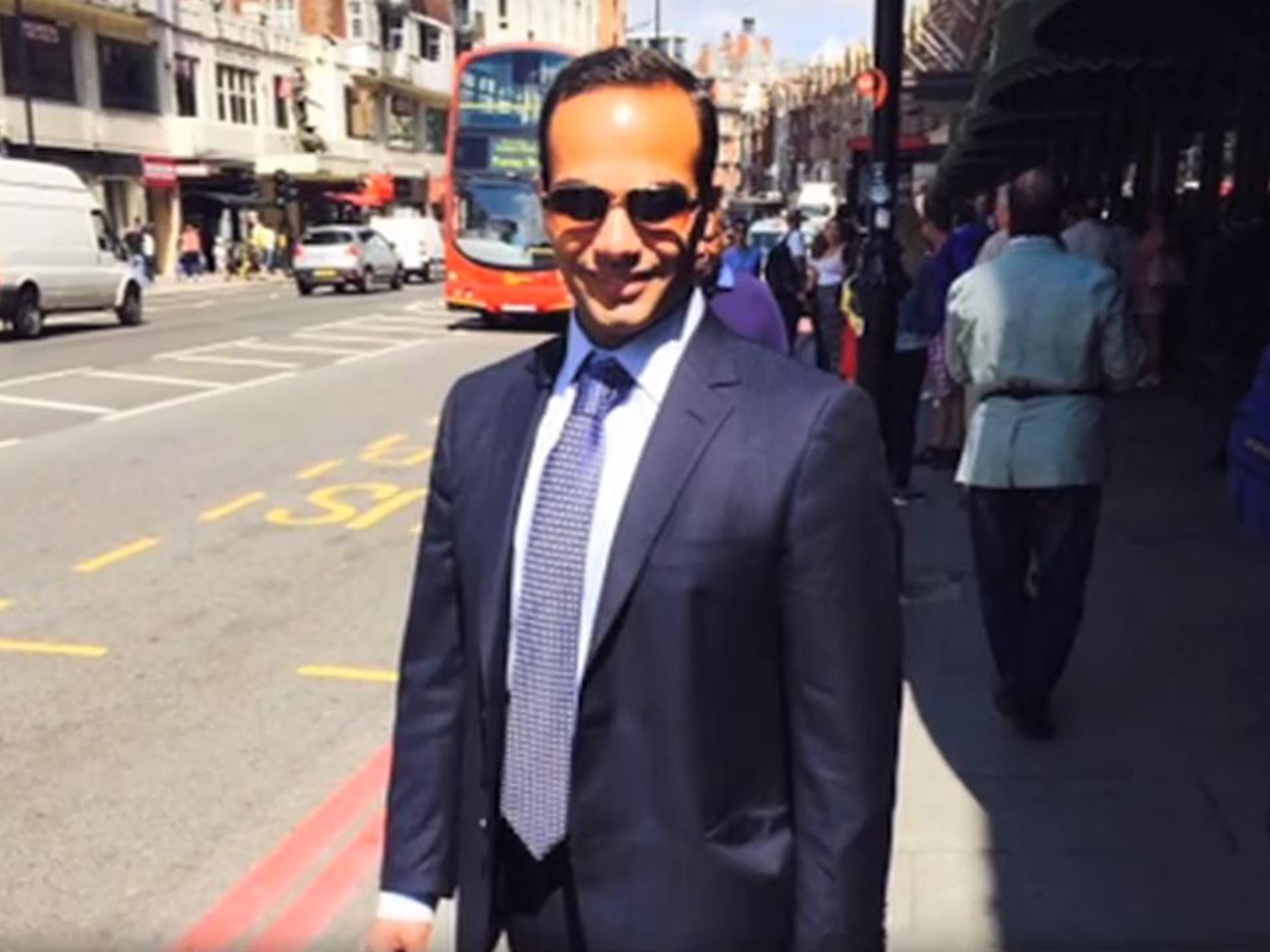Mueller says former Trump aide should spend six months in jail for lying to FBI in Russia probe
The 2016 campaign foreign policy aide pleaded guilty last year

Your support helps us to tell the story
From reproductive rights to climate change to Big Tech, The Independent is on the ground when the story is developing. Whether it's investigating the financials of Elon Musk's pro-Trump PAC or producing our latest documentary, 'The A Word', which shines a light on the American women fighting for reproductive rights, we know how important it is to parse out the facts from the messaging.
At such a critical moment in US history, we need reporters on the ground. Your donation allows us to keep sending journalists to speak to both sides of the story.
The Independent is trusted by Americans across the entire political spectrum. And unlike many other quality news outlets, we choose not to lock Americans out of our reporting and analysis with paywalls. We believe quality journalism should be available to everyone, paid for by those who can afford it.
Your support makes all the difference.Special prosecutor Robert Mueller has recommended a former foreign policy aide to Donald Trump's 2016 campaign be jailed for up to six months for lying to the FBI.
George Papadopoulos had pleaded guilty to the charge in 2017 as part of a plea deal in one of the first indictments handed down by the FBI and Mr Mueller's team as part of the investigation into alleged collusion between the campaign team and Russian officials.
Prosecutors said in court filings the former aide severely hindered the early days of the investigation because he lied "at least a dozen" times in a January 2017 interview with the FBI about his contacts with a professor called Joseph Mifsud.
It was at that point "key decisions" were being made by the FBI regarding who to interview, when, and what to ask.
They also said in the filing he lied "to minimise both his own role as a witness and the extent of the campaign's knowledge of his contacts".
As a result, the prosecutors claimed because of Mr Papadopoulos's deliberate deception, the FBI was "substantially hindered [the FBI's] ability to effectively question" Mr Mifsud, who had been in contact with the campaign aide regarding emails which contained "dirt" on then-opponent Hillary Clinton.
The filing by the special counsel's office strongly suggests the FBI had "located" Mr Mifsud while he was in the US during the early part of the investigation, approximately two weeks after Mr Papadopoulos's interview.
The filing stated "the defendant's lies undermined investigators' ability to challenge the Professor or potentially detain or arrest him while he was still in the US," but did not reveal details about the interview which was conducted. Mr Mifsud left the country in February 2017 and has not returned since.
Had Mr Papadopoulos "told the FBI the truth when he was interviewed in January 2017, the FBI could have quickly taken numerous investigative steps to help determine, for example, how and where the professor obtained the information, why the professor provided the information to the defendant, and what the defendant did with the information after receiving it," according to the court filing.
Mr Mueller's team also stated the former campaign aide did not provide "substantial assistance" after his arrest in July 2017 and recommended he also pay a fine of $9,500 (£7,447).
Mr Papadopoulos had said his interactions with Mr Mifsud were "a very strange coincidence" and not related to his campaign work.
However, prosecutors indicated in the court document Mr Papadopoulos and Mr Mifsud began communicating in March 2016, claiming Mr Mifsud "showed interest in the defendant only after learning of his role on the campaign" as an aide.
Join our commenting forum
Join thought-provoking conversations, follow other Independent readers and see their replies
Comments